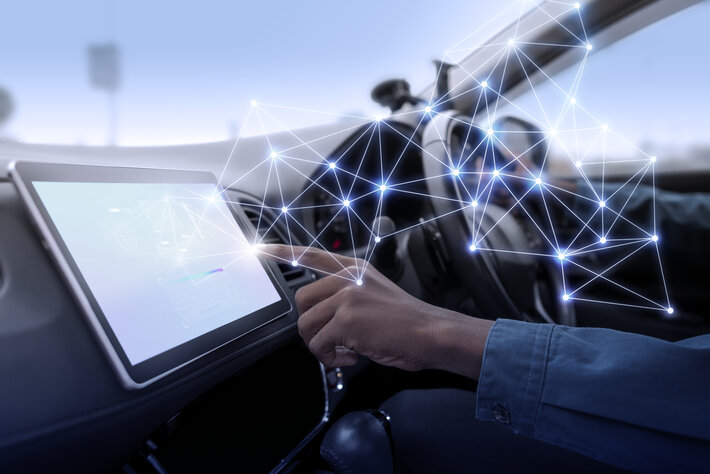Consumer IoT (Internet of Things) refers to the network of interconnected personal smart devices that gather and exchange data to enhance various aspects of our daily lives. These devices, embedded with sensors, software, and connectivity features, enable seamless communication and automation between people, devices, and services.
The IDC forecasts that there will be 50.5 billion connected IoT devices by 2025, generating 80 zettabytes (ZB) of data. Suppose businesses are able to leverage IoT to harness all this untapped information effectively. In that case, it will present a paradigm shift in consumer services in an era where “data is a new currency.”
In this article, we’ll explore the current state of consumer IoT, where it’s headed, and how businesses can use it to improve their bottom line.

Understanding consumer IoT: Revolutionizing daily lives and consumer services
The range of personal smart devices within the Consumer IoT ecosystem is vast and constantly expanding. Smartphones and wearable devices like smartwatches and fitness trackers are widely popular, offering features such as health monitoring, communication, and access to various applications. Additionally, smart home devices such as thermostats, security systems, lighting, and appliances enable remote control and automation, enhancing convenience and energy efficiency.
The impact of Consumer IoT on our daily lives is already profound. With connected personal smart devices, individuals can monitor their health, track fitness goals, and receive personalised recommendations. Home automation allows for increased comfort, security, and energy savings. For transportation, connected cars enhance safety, provide real-time navigation, and enable vehicle diagnostics.
Moreover, Consumer IoT has transformed consumer services. Although somewhat controversial, companies can gather vast amounts of data from connected devices, providing valuable insights into consumer behaviour, preferences, and usage patterns.
This data serves as a new currency, allowing businesses to offer personalised experiences, tailor products and services, and make data-driven decisions.
For instance, retailers can utilise IoT data to create personalised shopping experiences, while insurance companies can develop usage-based policies.

Consumer IoT and the value of data
In today’s digital landscape, data has become a valuable resource that fuels the growth and success of companies across various industries. As IoT continues to revolutionise consumer services, the importance of data has skyrocketed, offering unprecedented opportunities for businesses.
Most importantly, data is pivotal in helping companies gain insights into consumer behaviours and preferences. By leveraging the vast amount of data generated by connected personal smart devices, businesses can delve deep into the intricacies of consumer interactions, preferences, and patterns. This newfound wealth of information empowers companies to tailor their products and services to meet the specific needs of their target audiences.
In this context, consumer IoT devices, such as smart home assistants, wearables, and connected appliances, serve as data collection points. These devices continuously gather a wealth of information about consumers’ behaviours, habits, and preferences, which businesses can analyse for marketing and sales.
Their always-on nature provides a real-time, granular understanding of consumer’s daily lives, enabling companies to predict trends, anticipate demands, and proactively address customer needs.
With 97.2% of businesses investing in Big Data and AI, the ability to collect and use vast amounts of consumer data effectively will become a must to remain competitive.

Leveraging consumer IoT data for business
Consumer IoT devices have revolutionised how we live and opened up new avenues for businesses to use their data. Leveraging the wealth of information gathered through these devices, companies can unlock a variety of benefits:
Personalised marketing and product recommendations
By utilising consumer data collected through IoT devices, companies can tailor marketing campaigns and recommendations on a massive scale. Personalised marketing fosters stronger customer engagement, boosts conversion rates, and enhances overall customer satisfaction. The benefits are clear, with 99% of marketers reporting that it helps improve customer relations.
Enhancing customer experience
By analysing data on usage patterns, preferences, and feedback, companies can better understand their customers’ needs. This insight allows for more personalised and proactive customer support, streamlined processes, and the ability to anticipate and address issues before they arise. Ultimately, this leads to improved customer satisfaction, loyalty, and advocacy.
Product development and innovation
IoT data unveils emerging trends and consumer demands, empowering businesses to develop innovative products and services. By staying ahead of the competition, companies can deliver offerings that meet evolving market needs.
Data monetisation and partnerships
Aggregated and anonymised IoT data can be shared or sold to third parties. That enables valuable insights while preserving user privacy. Businesses can leverage their IoT data through strategic partnerships to unlock new revenue streams.

Ethical considerations and data privacy
In an era of increased access to consumer data, ethical considerations and data privacy play a crucial role in maintaining trust between businesses and consumers. Understandably, the public and lawmakers have increasingly heightened concerns about how businesses collect and use their data. That has created a complex web of ethical concerns businesses much unravel to avoid significant financial and reputational harm.
Consumer consent and data privacy regulations
Obtaining explicit consent ensures that individuals know how their data will be used and gives them some control. Data privacy regulations, such as the General Data Protection Regulation (GDPR), The Health Insurance Portability and Accountability Act (HIPAA), and the California Consumer Privacy Act (CCPA), reinforce the importance of securing consumer data, empowering individuals with rights over their personal information, and imposing penalties for non-compliance.
Transparent data practices and responsible data usage
Companies must adopt transparent data practices, providing clear and accessible information to consumers about the types of data collected, how it is used, and with whom it is shared. This builds trust and enables individuals to make informed decisions regarding their privacy. Responsible data usage involves robust security measures to safeguard data against unauthorised access, breaches, and cyber threats.
Balancing benefits and privacy concerns
While Consumer IoT offers numerous benefits, privacy concerns and security risks shouldn’t be overlooked. Striking a balance between deriving insights from consumer data and respecting privacy is crucial. Businesses should implement privacy-by-design principles, prioritise data anonymisation, and minimise data collection to what is necessary for delivering value to consumers.
The power and responsibility of consumer IoT data
Consumer IoT plays a crucial role in collecting valuable consumer data, empowering companies to make data-driven decisions. Forecast to grow at a CAGR of 12.2% to reach a market cap of $220.50 billion by 2030, its potency as a competitive factor is only going to increase. In an era where “data is the new currency,” companies can harness the power of consumer IoT data to enable personalised experiences, informed decision-making, and new avenues for growth. However, like any valuable asset, companies must navigate this landscape responsibly to avoid negative consequences an











